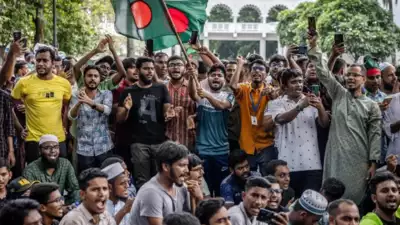The recent crisis in Bangladesh has seen students playing a pivotal role in forcing the Chief Justice to resign. The catalyst for the unrest was the Supreme Court’s controversial decision to uphold a ruling that was widely perceived as favoring the ruling party over opposition candidates. This decision, which many believed compromised judicial impartiality, triggered widespread outrage among students and civil society groups.

Source:- news 18
Protests began in earnest when students from various universities took to the streets, demanding accountability and transparency in the judiciary. Their frustration was compounded by allegations of corruption and political interference within the court system. As the demonstrations grew, they increasingly targeted the Chief Justice, whom they held responsible for the perceived erosion of judicial independence.
Source:- BBC news
The protests were marked by mass gatherings, confrontations with police, and disruptions across major cities. Students organized rallies, sit-ins, and marches, employing social media to amplify their demands and mobilize support. Their demands extended beyond the resignation of the Chief Justice to include broader judicial reforms and a more transparent legal process.
The pressure mounted as the protests continued, and the scale of public dissatisfaction became undeniable. The government, facing mounting international scrutiny and internal pressure, ultimately intervened. The Chief Justice, confronted with an unyielding wave of public dissent and the risk of further escalation, tendered his resignation. This move was seen as a significant victory for the student-led movement, reflecting the impact of grassroots activism on high-level political and judicial institutions.
The resignation of the Chief Justice represents a crucial moment in Bangladesh’s ongoing struggle with issues of governance and judicial integrity. It underscores the power of public protest in influencing political and legal systems, highlighting the need for reforms to restore public trust in democratic institutions.
Share your views in the comments

